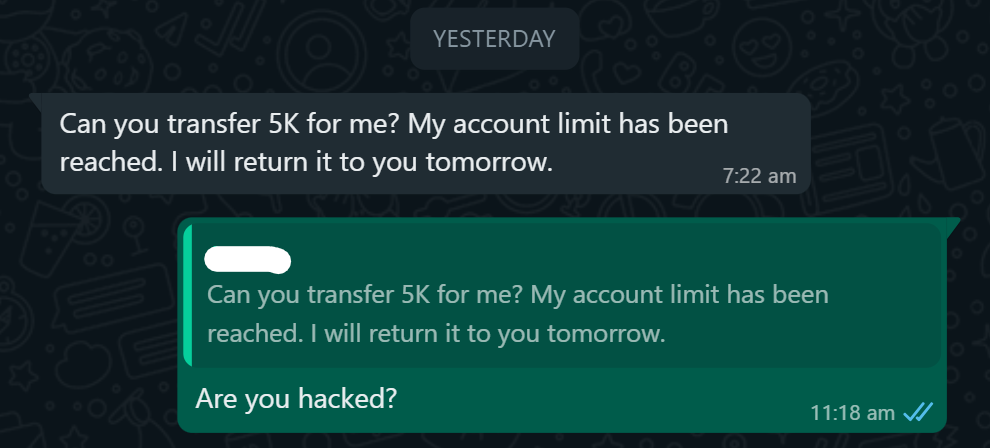SINGAPORE: A new type of phishing scam has recently emerged in Singapore, with scammers designing fake WhatsApp Web sites and QR codes to hack the WhatsApp accounts of unsuspecting victims.
The police has issued a statement saying that in recent cases, victims would search the official website of “WhatsApp Web” through Internet search engines. When the search results appear, victims often click directly on the first few search results without verifying the URL.
The police said that in some cases, the URL that the victim clicked was not the official website of WhatsApp, but a phishing website designed by scammers.
Although the website displays the WhatsApp QR code, when the victim scans the code with their mobile phone to log in to the WhatsApp web version, they cannot log in smoothly.
Instead, the scammer will invade their WhatsApp account and conduct unauthorized activities, such as posing as a victim. The scammers send messages to the victim’s contacts asking for personal and electronic banking information or requesting money to be transferred to a designated bank account.
The person whose identity has been stolen remains unaware that they are being impersonated as they are unable to view any messages that are sent remotely from their accounts. They often only become aware that their WhatsApp accounts have been compromised when their contacts notify them that they are being asked to transfer money or request their electronic banking information.
One victim of this scam, Mary, told The Independent Singapore that a message stating “Can you transfer 5K for me? My account limit has been reached. I will return it to you tomorrow” was sent from her WhatsApp to her daughter and her employer.
Mary said she was shocked when her boss called her in to her office and asked about the request. When she looked at her phone, she could not see any message that had been sent.
She said, “I’m glad my daughter and my employer contacted me before giving any information to the scammers. I immediately logged my WhatsApp out of all my linked devices and have not since any suspicious activities since.”
The police have reminded the public to be more vigilant. When using WhatsApp Web, members of the public are advised to make sure they are clicking on the official website and to activate WhatsApp’s two-factor verification function to protect their account from being hacked.
The authorities also remind the public not to share their WhatsApp account verification codes, personal information, bank information and one-time passwords with anyone online.

